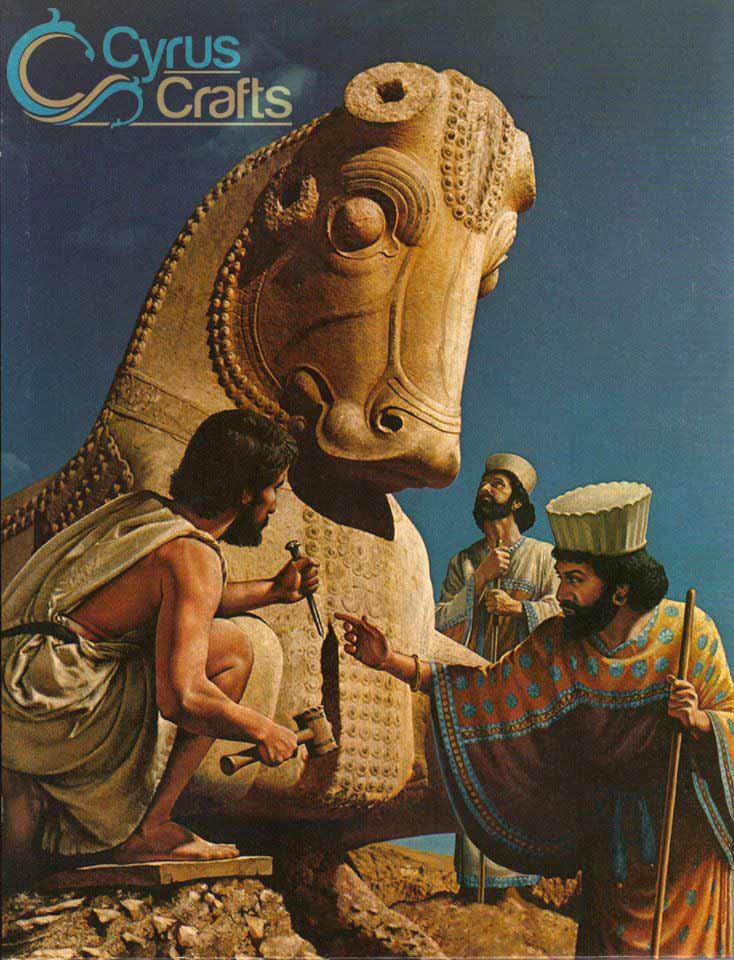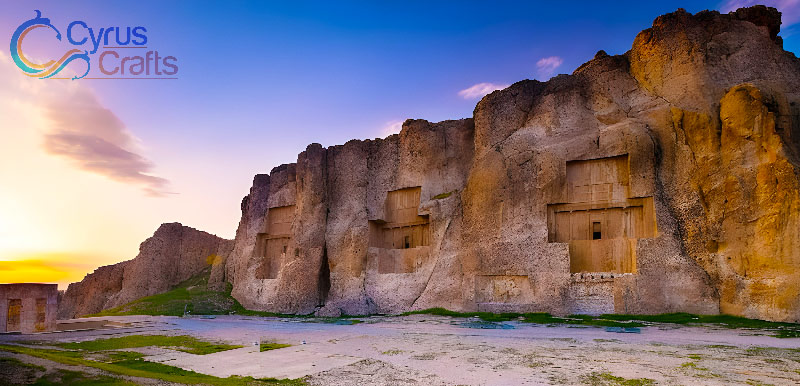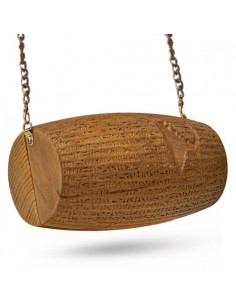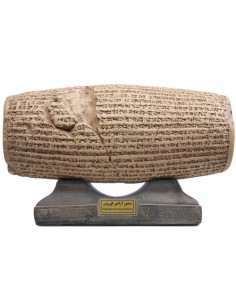- M.A
- News
- 7182 views
- 0 comments
Darius I, named Darius the Great (born 550 BC—died 486), was king of Persia from 522–486 BC. Darius the Great is one of the most famous kings of the Achaemenid Empire. He was noted for his administrative genius and his great building projects. Persia's infrastructure and economy were overhauled, and new lands were conquered under his rule.
His leadership and administration strengthened Persia by allowing those he conquered to live peacefully.
Persia was the largest empire throughout the ancient world, stretching from the Balkans to the Indus Valley. A great civilization was built by Darius, who constructed great palaces and the impressive Royal Road. He revolutionized the economy, unified the currency, and reformed the legal system during his reign.

How Did Darius the Great Come to Power?
Darius was the son of Hystaspes, the satrap (provincial governor) of Parthia. Historically, the most reliable sources are his inscriptions about how he acquired the throne, especially the great trilingual one Bīsitūn (Behistun). On many points, Herodotus and Ctesias' accounts of his accession are derived from this official version, although legends are woven throughout.
According to Herodotus, when a youth, Darius was suspected by Cyrus I of plotting against the throne. As a member of the royal bodyguard, Darius later joined Cambyses II in Egypt, the son of Cyrus. When Cambyses died in 522 BC, Darius hastened to Media. In September, he murdered Bardiya (Smerdis), another son of Cyrus, who had usurped the throne a few months prior. Darius defended this action. He pointed out that the usurper was Gaumata, a Magian who had impersonated Bardiya after Cambyses had secretly murdered him. Darius, therefore, claimed that he was restoring the kingship to the rightful Achaemenid house. Since Darius' father and grandfather were alive, he was not first in line to the throne. Some modern scholars consider that he invented the story of Gaumata to justify his actions. They say that the murdered king was indeed the son of Cyrus.
Cyrus Crafts; Luxury & Unique Products
What Does the Name Dariush Mean?
The name ''Darius'' is a Persian term that means ''holding firm'' or ''supporting.'' Darius the Great held firmly to Zoroastrianism and supported the expansion of the Persian Empire, thus justifying his name.
Darius the Great as a Leader
As an administrator, Darius made the greatest contribution to Persian history. He consolidated and added to the conquests of his predecessors. He completed the organization of the empire into satrapies, initiated by Cyrus the Great. Darius also fixed the annual tribute due from each province. Imperial trade and commerce were promoted during his reign through ambitious and far-sighted projects. Land and sea routes and standardized coinage, weights, and measures were developed. Scylax of Caryanda led an expedition down the Indus River. He explored the sea route from its mouth to Egypt. The king also repaired and completed the canal from the Nile River to the Red Sea, likely begun by Necho I (7th century BC) of the Egyptian delta lords.

The picture above shows a part of Persepolis, one of the greatest Achaemenid masterpieces of Persian architecture art.
What is Darius Most Famous for?
King Darius of Persia was known for his steady and firm hand, which ensured economic stability and worship of Ahura Mazda, the highest god of Zoroastrianism. He maintained tributary relationships with other states during his reign. These interactions include dealings with:
- During Darius' invasion of Greece, he attempted to subjugate the Greeks. He was ultimately defeated in the Battle of Marathon in 490 B.C.E.
- Babylon's rulers revolted against Darius the Great not once, not twice, but three times. Darius successfully suppressed these rebellions.
- Darius traveled to Egypt after Egypt revolted against his rule in 486 B.C.E.
Important Actions of Dariush Shah
His measures to consolidate his vast empire were more important than his conquests. Their organizational skills of Darius are unmatched by any other ancient or modern ruler. He divided the empire into 20 provinces (satrapies) with minimal interference from their Persian overlords. He set the annual tax amount for each province and sent agents to watch his distant satraps and ensure they weren't overtaxing their subjects. Those "eyes and ears of the king" kept sedition to a minimum.
Zoroastrianism became the state religion under Darius's rule, providing a sense of unity throughout his empire. However, Darius did not impose his belief system on other believers. It was possible for his subjects to worship their own gods and keep their own cultural traditions in conquered lands.
Death of Darius the Great
Following the Persian defeat at Marathon, Darius planned another expedition against the Greek city-states; this time, he, not Datis, would command the imperial armies. When a revolt broke out in Egypt, Darius had spent three years preparing men and ships for war. Due to this revolt in Egypt, his failing health made it impossible for him to lead another army. Soon afterward, Darius died. In October 486 BCE, his body was embalmed and entombed in the rock-cut tomb at Naqsh-e Rostam, which he had been preparing. An inscription on his tomb introduces him as "Great King, King of Kings, King of countries containing all kinds of men, King in this great earth far and wide, son of Hystaspes, an Achaemenian, a Persian, son of a Persian, an Aryan [Iranian], having Aryan lineage." The relief depicting equestrian combat was later carved by Bahram II (r. 274–293 CE).
Xerxes became Xerxes I after succeeding to the throne as the eldest son of Darius and Atossa; Darius's eldest son Artobarzanes, who was born to his first wife before Darius rose to power, contested the succession with Xerxes. Xerxes, a descendant of Cyrus, ruled the empire after his accession.
Our team at CyrusCrafts has sold all kinds of exquisite Persian rugs and Persian handicrafts with the support of Cyrus's great name and the aim of developing Cyrus's legacy in other countries. You can find out about the list of products, discounts, and our latest articles by referring to the above menu.

Our team at CyrusCrafts has sold all kinds of exquisite Persian rugs and Persian handicrafts with the support of Cyrus's great name and the aim of developing Cyrus's legacy in other countries. You can find out about the list of products, discounts, and our latest articles by referring to the above menu.













Comments (0)